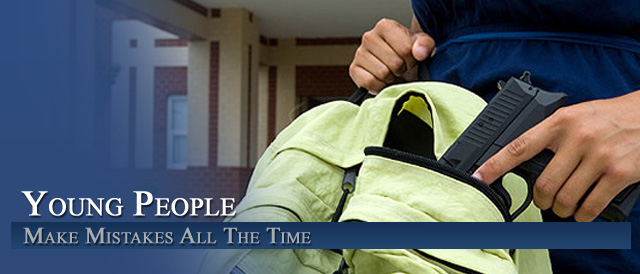

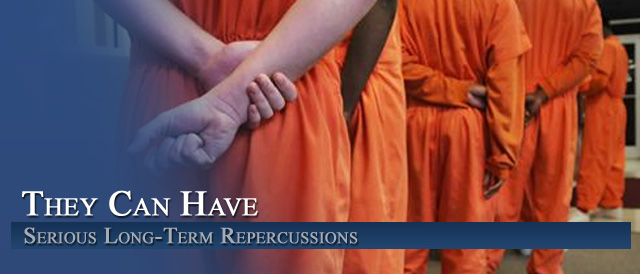

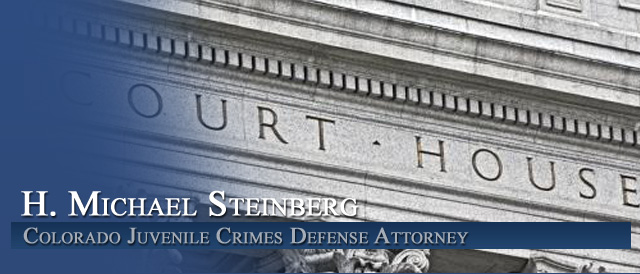
Getting Released From Colorado DYC – Division Of Youth Corrections
By H. Michael Steinberg Colorado Juvenile Crimes Criminal Defense Lawyer – Attorney
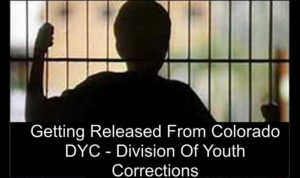 Getting Released From Colorado DYC – Division Of Youth Corrections – Sentencing in serious Juvenile cases may require an indeterminate sentence to DYC – the Colorado Division of Youth Corrections. The nature of an “indeterminate” sentence itself is a frightening prospect because of the inherent ambiguity of the sentence. When will it end – how will it end – and how do I get out of DYC as soon as possible and what procedures must I follow to get back to my family.
Getting Released From Colorado DYC – Division Of Youth Corrections – Sentencing in serious Juvenile cases may require an indeterminate sentence to DYC – the Colorado Division of Youth Corrections. The nature of an “indeterminate” sentence itself is a frightening prospect because of the inherent ambiguity of the sentence. When will it end – how will it end – and how do I get out of DYC as soon as possible and what procedures must I follow to get back to my family.
While I have written on the subject of Colorado Juvenile Parole before – here and here, this article again seeks to answer many of those questions.
There are also several online sources of information to assist juveniles and their families to understand the Colorado Division Of Youth Parole (The DYS Youth Handbook)
Some Background About The Colorado Division Of Youth Corrections
In Colorado, delinquency services are organized at both the state and local level.
The Division of Youth Corrections (DYC) is a division of the Colorado Department of Human Services (DHS). DYC administers and controls what can be simply described as “reentry services” The public understands this process as being “paroled” after a commitment to a juvenile state facility.
The “Release Decision” Process
In a nutshell, all youth who have been “adjudicated” and sentenced to the Department of Human Services Department of Youth Corrections (DYC) must go before the Colorado Juvenile Parole Board prior to their release. That is true whether the sentence (the “commitment“) to DHS is the result of a “mandatory” (determinate) sentence or a “non-mandatory” (indeterminate) sentence.
The Colorado Division Of Youth Corrections utilizes a “multi-disciplinary team” approach to review all sentences to DYC (mandatory and non-mandatory) for parole. The purpose of the team is to determine when the sentenced juvenile becomes “eligible” to go before the Colorado Juvenile Parole Board.
The multi-disciplinary team uses input from many sources along with a tool known as the Colorado Juvenile Risk Assessment (CJRA). The multi-disciplinary team decides whether to recommend the juvenile for further review by the Juvenile Parole Board.
By law it is the 9 member Colorado Juvenile Parole Board that is solely authorized to:
grant,
deny,
modify,
suspend, or
revoke, and
specify
…..the “conditions of parole” for all juvenile delinquents adjudicated to the Department of Human Services.
The Step Down Process – An Intervening Step
Some Colorado counties require that their Community Review Board approve juveniles placement into residential programs before juvenile parole. This “step-down” process occurs while the juvenile is still committed to DYC. It is only after the residential program is completed that juvenile is allowed to go before the Colorado Juvenile Parole Board.
Colorado Juvenile Community Review Boards exist in every Colorado county in which there are community-based placements. These boards include private citizens, social workers, teachers, probation officers, lawyers, and representatives from law enforcement and the Division of Youth Corrections.
This “stepping down” point occurs when DYS no longer requires secure placement, but the juvenile has more time left in his sentence. In counties that have Juvenile Community Review Boards, these Boards will not allow for community placement until the County Juvenile Community Review Board approves the transfer.
The Colorado Juvenile Parole Board
The Colorado Juvenile Parole Board has a legal mandate to both protect the safety of the public and to act in the best interests of the youth whose lives rest in their hands. Very specific statutory criteria is used to balance the sometimes competing interests of promoting public safety and carefully acting in the best interest of the juvenile when the “reintegration” decision placing the juvenile back into the community is made.
Colorado juveniles emerging from DYC have to serve a period of parole. That parole time is established pursuant to Colorado Revised Statutes sections 19-2-909(1),(b), 19-2-921(6), and 19-2-1002(5)(a). While the usual mandatory parole period is six months, the law provides for an extension of a youth’s parole to a maximum of 21 months.
The Assessment Process Has A Great Impact On The Length Of Juvenile’s Sentence And Ultimately The Parole Decision
The Front-Range Assessment Unit for youth committed to DYS is located in Montview, a juvenile secure facility. The “tools” used by DYS to conduct the assessment process is primarily the Colorado Juvenile Risk Assessment (CJRA).
The CJRA is used to determine what is commonly referred to as “risk” and “protective” factors. Evidence based research is used to determine these risk and protective factors and, as noted, testing is interpreted by the juvenile’s multi-disciplinary team (MDT).
The multi-disciplinary team (MDT) often includes a broad based membership to include the juvenile’s family, the client manager, line staff, the assessment specialists and others who are stake holders in the juvenile’s success.
The 30 Day Assessment Period
After a juvenile is “committed” to the Division of Youth Corrections they are remanded to detention to await transfer to an “assessment center,” …the first stop within the DHS system.
The thirty-day assessment period includes a battery of tests and evaluations to include:
medical,
dental,
educational,
psychiatric, and
drug and alcohol assessments.
The assessment includes a review of existing information from the Court such about the juvenile such as the commitment order, the delinquency petition, the order of adjudication, any social studies, and any clinical or educational evaluations or reports.
The assessment process culminates in an “offense severity score” and “a recidivism risk score.” These scores are used by DYS to determine whether a juvenile is to continue to have a placement in a “secure” facility or whether the juvenile is “appropriate” for a community placement.
The “offense severity” score is most impacted by the nature of the crime committed. The more serious the crime, the higher the score.
The “recidivism risk” score is determined by factors such as the number of prior adjudications, the age at first adjudication, prior drug and alcohol referral or treatment, prior out-of-home placements, runaway history, and also, (again), the presenting offense.
The 30 day assessment is complex involving many factors which are used to determine the length of the juvenile’s placement. It is difficult to make a prediction as to the length of the actual sentence served when the sentence is an indeterminate sentences such as 0 to 2 years.
The Key Role Of The “Client Manager”
The juvenile is assigned a “client manager” by the end of the 30 day assessment unit. The client manager is in a pivotal role, as you will see below, to oversee the juvenile’s movement through the DHS system.
A Comprehensive Description Of The Client Manager Found On The State Website
The purpose of this position is to develop and monitor an individualized continuum of care for delinquent youth between the ages of 10 and 21 sentenced to the Department of Human Services from the time of commitment through parole to discharge.
This is accomplished through on going Multi-Disciplinary Team process to include assessment of the youth and the family, development and review of the individual case plan, brokering treatment and transition services, family engagement, monitoring service delivery, providing direct care as necessary, maintaining appropriate records, data entry and community collaboration and resource development.
Assessment Process: Complete quarterly, monthly or situational case monitoring to include: meet with youth; family assessment and completion of releases; review all available information; identify basic needs; initiate placement process; facilitate assessment staffing; collect all identifying documents; assess placement options; begin case plan process.
Case Planning: Individualized case plan for client on caseload. Finalize placement continuum; determine treatment modalities and needed resources; develop time lines for service delivery; case conference with youth, family, and interested parties; broker residential and non-residential services; on-going monitoring of plans including monthly case reviews and family consultations; revision of plan as necessary; participate in administrative review.
Record Keeping and Data Entry: Prepare, update and maintain, with a high level of accuracy, individual client records within the computerized client record system; complete required documentation for length of stay extensions, reclassifications, and contact notes; maintain the official Division of Youth Services file; complete the monthly review form and ensure proper distribution; close out official case file to Closed Records.
Communication: Compile, copy, and distribute required documents for contract vendors, Community Review Boards, and Interstate Compact office. Present cases and make recommendations to the Community Review Board and Parole Board; compile reports and/or give testimony to the courts as required; negotiate for services, court dispositions, placements and treatment resources. Facilitation of professional meetings.
Community Relations: Attend community meetings relevant to the Division of Youth Services and its clients; explain Division of Youth Services policies and procedures to interested parties; participate on boards, committees, planning groups relevant to Youth Services.
Crisis Management: Mediate client issues with courts, community, agencies, state and contracted programs, law enforcement, families and service provider; execute emergency placements for clients needing psychological services, housing, family mediation, and safety; as dictated by Division of Youth Services policy, assume responsibility for accessibility for emergency notifications and consultations.
Parole/Aftercare: Pre-parole planning and meeting; develop parole plan, schedule hearing, conform to time frames; present case at parole hearing; recruit, develop advise, negotiate, monitor, over site of providers and other contract parole services; supervise youth, maintain contact with family, law enforcement, and community agencies; determine need for and complete parole violations. On-going monitoring of community safety.
Planning: Assist regional office in development of community services/programs; assist in caseload distribution, identification of duties, on-going awareness of sustained supports; creative and adaptive response to client and family unique needs; apprise the Western Region Office of changes and needs in specific geographic area assigned.
What Happens When The Juvenile Arrives In The Secure Placement Facility
Once juveniles are in a secure placement, the focus of their stay is functional and practical.. That is, to prepare them for life outside of DHS and to reduce the likelihood that they will re-offend.
A juvenile committed to DYC will be involved in:
Therapy, (both individual and group),
Scholastic matters,
Athletics,
Development of vocational skills (such as auto mechanics, computer repair and electronics, silk-screen printing, culinary arts, and horticulture).
Of paramount importance are the therapeutic programs which can include such programs as
Victim awareness,
Aggression replacement,
Sexual perpetration therapy, and
drug and alcohol counseling.
The Juvenile Parole Board Parole Decision Criteria
While a farily comprehensive statute outlines the purposes and procedures of Colorado Juvenile Parole, Children’s Code 19-2-1002 Juvenile Parole, certain regulations and policies of the Colorado Board of Parole shed light on the criteria and procedures followed by the Board.
These “regs” and “policy statements” lend important guidance to an individual or family attempting to understand the law Children’s Code 19-2-1002 Juvenile parole in this area.,
Regulation 28.100 Parole Decision Criteria is key to trying to comprehend the behind the scenes decision making used by the Colorado Juvenile Parole Board.
Here is reg 28.100 – reprinted (as of 2017):
28.100 [Colorado Juvenile] Parole Decision Criteria
Parole release decisions shall be made in a manner that is in the best interests of the juvenile, the victim and the community. In making a decision concerning the granting of parole, each member will consider the following criteria:
Juvenile
A. The number and severity of the committing offense(s) and other adjudications or convictions.
B. The juvenile’s successes and negative behaviors in a program while in the Division of Youth Corrections Commitment and while on parole.
C. The existence of an acceptable parole plan that provides a foundation for the youth to successfully transition into the community.
D. The review of the juvenile’s therapeutic, educational, and behavioral progress within DYC programs.
E. The results of the objective risk assessment administered by the State of Colorado Department of Human Services and the Division of Youth Corrections.
Victim
A. The rights of the crime victim as defined by the Victims Rights Amendment, 24-4.1 §§ 301-304, C.R.S. (2012).
B. Demonstrated understanding of the victim impact and safety concerns.
Community
A. The juvenile’s adjustment into the community as evidenced by conduct during home passes, school, work, special events or other community release.
B. The juvenile’s payment of restitution and completion of community service hours as required by the courts.
C. Demonstrated understanding of community safety.
Another Tool Used By The Colorado Juvenile Parole Board is the Parole Board File Checklist
(reprinted below:)
The Colorado Juvenile Parole Board Parole File Checklist Policy I-113
Pursuant to C.R.S. 19-2-1002(2), all relevant recordings pertaining to a juvenile coming before the Board or panel shall be made available.
The following list represents the standard information requested for each case file. Additional information may be requested as needed to make appropriate parole decisions.
Reasonable efforts shall be made to obtain the requested information. Failure to provide this information may result in the rescheduling of a hearing.
Must be included in all case files:
A Parole Plan
A Home Inspections Report (unless institutional/community residential)
An Initial DCY Diagnostic Assessment
A DYC Face Sheet
Treatment reports from last six months
Discharge reports from all program placements
The Juvenile’s “Treatment/Discharge report” (from the current placement) will include a recommendation regarding parole including a synopsis of juvenile’s present mental health problems, primary focus of treatment, and pertinent medical issues if applicable to parole request)
A Mittimus (the Court order) for each committing offense.
A Current CJRA (Colorado Juvenile Risk Assessment).
Impact of Crime statements.
A Copy of signed confidentially releases (if required).
For Sex Offenders
A Safety/Relapse Plan for Sex Offenders.
The Final decision and recommendations for Multidisciplinary Team (MDT).
A Completed polygraph summary
A Sex Offender parole plan
[HMS – Additional Materials]
Pre-Sentence Investigations (PSI’s)
Summaries of all completed polygraphs
All law enforcement reports regarding criminal offenses (felonies)
Delinquency petition for each committing offense
Correspondence from District Attorney/Judge/Community Review Board regarding parole decision
Letters of support or opposition to parole
Documentation of Community Service/Restorative Justice Efforts by Youth (parole plan)
Victim impact statement
Yet Another Policy – 1-104 – Addresses A Juvenile’s Request For Parole And The Process And Factors That Apply To The Discharge From Parole
The following policy and procedure addresses key aspects of the Juvenile’s request for parole and discharge from parole – it provides excellent insight into the most important criteria that the juvenile and their families should understand.
Requests for Discharges and Juveniles Not Considered for Parole Procedure Number: 1-104
Background / Purpose
It is the policy of the Juvenile Parole Board (JPB) to follow the statutory intent in Section 19-2-1002(9), C.R.S., which states that the Board may discharge all or any portion of a juvenile’s parole when it appears that a juvenile may not benefit from parole services.
Policy
Section 19-2-1002(9), C.R.S. states that the Board may discharge all or any portion of a juvenile’s parole when it appears that the request by the Division of Youth Services (DYS) meets the standards of the statute.
A. Before mandatory parole begins:
The Client Manager/Parole Officer may submit a request to the Juvenile Parole Board at
anytime when a juvenile is:
1. Unavailable to complete the parole period or extension due to being unavailable for
services;
2. Under adult probation and the sentence is longer than 6-months;
3. Unavailable due to an adult sentence;
4. Transferred out of state and is not in conflict with the interstate compact on juveniles;
5. In a mental health or medical institution; or
6. Any other reason defined by Rule.
The requests shall be referred to the board for review and a decision made by a majority vote of
the board members present.
B. Before the completion of mandatory parole:
The JPB may discharge a juvenile before the completion of his/her mandatory six-month parole when the client manager/parole officer demonstrates either the juvenile is unavailable to complete the parole period for reasons listed in part A above, or if, at a minimum, the conditions of special achievement listed in Section 19-2-1002(9)(c), C.R.S. and the following criteria are met.
1. Completion of education by receiving a diploma or CED; and
2. Documentation that 100% of any restitution ordered has been paid in full, regardless of whether the restitution ordered is attached to the committing offense.
DYS shall request a hearing before the JPB, submit victim notification at least 30 days in advance, and submit a completed copy of the JPB “request for early discharge” form to assist the JPB in their decision-making process. Types of information included as part of the form is demonstrating,
1. Unanimous support from the designated multi-disciplinary team (MDT) membership for the request for exemplary discharge from parole.
2. A list of MDT members and a summary of the MOT’s careful consideration of the seriousness of the crime and the harm caused to the victim and the community including any specific restorative measures taken by the youth to mitigate and repair that harm.
3. How the MDT, and specifically the client manager/parole officer, has assessed that the youth has taken full accountability for his/her actions resulting in the commitment, has fully met the requirements of the case plan(s) that have been in place, has met the goals of each placement they have had, and how all this information has been used to determine that community safety is best assured through exemplary discharge from parole.
4. List of mandatory protection orders and an assessment on the potential impact on the victim if a mandatory protection order is lifted as a result of the discharge from parole.
5. An updated objective risk assessment indicating reduced risk to the community.
6. Evidence that the juvenile has been maintaining a full time program; the length of time this has been in place; any issues or concerns that have arisen (i.e., violation of curfew and reason, etc.)
7. Show that the juvenile has successfully tapered off of all services provided by DYS so a successful transition to true self sufficiency has been documented.
8. An explanation of how the youth has demonstrated internal motivation evidenced by the ability to find and seek out resources and help through sustainable outlets.
9. Identify if supervision is hindering or preventing the client from making positive forward moves for their life.
Additionally, the juvenile shall submit a written plan and present information that addresses long-term goals, what they have learned, how they have benefited from the services provided to them, and the internal changes they have made to assure the JPB of their future ”law abiding citizenship” and how they will identify when and if they need assistance to maintain the positive personal and internal changes that led to the request for exemplary discharge from parole.
If a juvenile requesting discharge has intent to join military service the following information shall also be required:
1. A detailed plan from the juvenile specifying the interim steps that the juvenile will take prior to entering military service; and
2. A military recommendation, either by letter or by testimony, by an appropriate member of the specified military organization with the authority to make such a recommendation. The recommendation shall state that the juvenile has passed all criterial required to join the specified military organization and that the specified branch of the military intends to accept the juvenile and move forward with a contract.
C. After the mandatory 6-months of parole – “Exemplary” Release From Parole
Section 19-2-1002(a), C.R.S. states that it is the expectation of the JPB that the juvenile and the parole officer appear, in person, before the JPB except under extenuating circumstances, when the parole officer would like to request the discharge of parole any time after the juvenile has served the mandatory parole.
The board shall determine whether or not the youth has risen to the level of exemplary achievement/performance on parole. The board shall take into consideration:
1. The recommendation submitted by the DYS and recommendations by individual MDT members of support or non-support;
2. Success on parole and examples of excelling above and beyond while on parole;
3. The plan submitted by the parolee on how he/she will remain at liberty without violating the law;
4. Documentation of any court obligations (payment towards restitution, warrants, etc);
and
5. The basis for the initial extension.
Quick Note: Parole And Colorado Violent and Aggravated Juvenile Offender Parole Release Hearings – Section 19-2-1002(3)(a)(II), C.R.S.
Special rules apply to different rules that apply to the release on parole of juveniles convicted as violent and or juvenile offenders.
Here is the law:
Background / Purpose
Section 19-2-1002(3)(a)(II), C.R.S. provides that the hearing panel shall not have authority to grant parole to juveniles committed as violent or aggravated juvenile offenders. In such cases, the entire Board shall conduct a hearing and make a decision by a majority vote of the board.
Policy
The full Board shall conduct hearings for juveniles committed as violent or aggravated juvenile offenders, unless the hearing is a Post Commitment parole hearing. In the case of a Post Commitment parole hearing, a hearing panel shall conduct the hearing and make recommendations to the full Board regarding the effective date, placement and conditions for parole.
The panel recommendations shall be presented to and voted upon by the full Board.
Procedure
1. A quorum of the Board, as defined by C.R.S. 19-2-206, must be present. The quorum may be established by videoconference consistent with Juvenile Parole Board policy – “Videoconference Procedures.”
2. A Board member will have lead responsibility to conduct the hearing. The JPB Administrator will assign the one member on a rotating basis.
3. All Board members will receive the full case material prior to the board meeting.
4. All Board members may interview the youth and the other parties.
5. The decision of the Board shall be by a majority of those present and be recorded on the Board Disposition Form
Getting Released From Colorado DYC – Division Of Youth Corrections
If you found any of the information I have provided on this web page article helpful please click my Plus+1 or the Share buttons for Twitter and Facebook below so that others may also find it.
The reader is admonished that Colorado criminal law, like criminal law in every state and at the Federal level, changes constantly. The article appearing above was accurate at the time it was drafted but it cannot account for changes occurring after it was uploaded.
If, after reading this article, you have questions about your case and would like to consider retaining our law firm, we invite you to contact us at the Steinberg Colorado Criminal Defense Law Firm – 303-627-7777.
Never stop fighting – never stop believing in yourself and your right to due process of law. You will not be alone in court, H. Michael will be at your side every step of the way – advocating for justice and the best possible result in your case. H. Michael Steinberg is passionate about criminal defense. His extensive knowledge and experience of Colorado Criminal Law gives him the edge you need to properly handle your case
 ABOUT THE AUTHOR: H. Michael Steinberg – Email The Author at:
ABOUT THE AUTHOR: H. Michael Steinberg – Email The Author at:
A Denver Colorado Criminal Defense Lawyer – or call his office at 303-627-7777 during business hours – or call his cell if you cannot wait and need his immediate assistance – please call 720-220-2277.
“A good criminal defense lawyer is someone who devotes themselves to their client’s case from beginning to end, always realizing that this case is the most important thing in that client’s life.”
You should be careful to make a responsible choice in selecting a Colorado Criminal Defense Lawyer. We encourage you to “vet” our firm. Over the last 35 plus years – by focusing ONLY on Colorado criminal law – H. Michael has had the necessary time to commit to the task of constantly updating himself on nearly every area of criminal law, to include Colorado criminal law and procedure and trial and courtroom practice.
Putting more than 40 years of Colorado criminal defense experience to work for you.
H. Michael works hard to get his clients the best possible results in and out of the courtroom. He has written, and continues to write, extensively on Colorado criminal law and he hopes this article helps you in some small way – Getting Released From Colorado DYC – Division Of Youth Corrections.
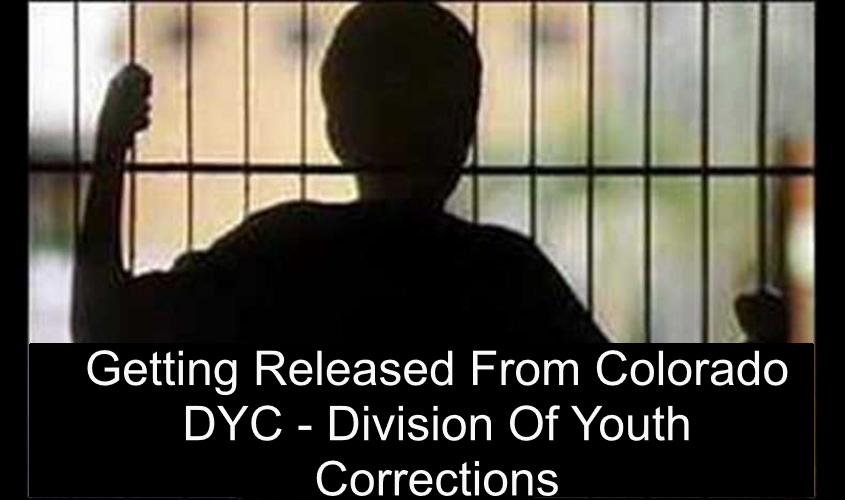
Other Articles of Interest:
- Sentencing – Community Accountability Program 19-2-914
- The Colorado Juvenile Justice System and Juvenile Parole I of II
- Commitment to Department of Human Services 19-2-921
- Parole Violation and Revocation 19- 2-1004
- A Denver Colorado Juvenile Crimes Lawyer Explains the Two Kinds Of “Juvi” Jail












